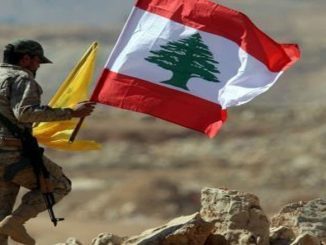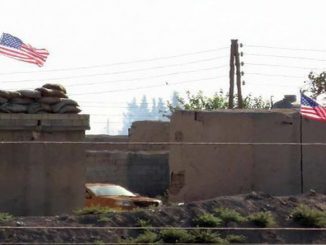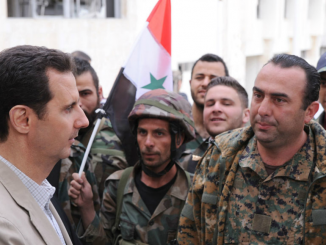
BY: Merve Şebnem Oruç
Turkey’s border with Syria was purged of Daesh elements with Operation Euphrates Shield, which was launched 45 days ago. This move that followed the Gülenist Terror Organization’s (FETÖ) failed coup attempt on July 15 led to a disappointment like the coup attempt on the side of Turkey’s so-called ally, the U.S. Another U.S disappointment is Turkey, which has been subjected to alienation in the international sphere for the last three years, and is starting to break the ice with Russia.
When the rising anti-U.S. sentiment among the Turkish people post-July 15 and the suspicion that the U.S. is behind the coup-created pressure on the Washington side, the U.S. administration chose to keep silent about the Euphrates Shield and as a matter of fact, act like it is supporting it. Meanwhile, U.S. President Barack Obama told President Recep Tayyip Erdoğan that the Democratic Union Party (PYD) completely withdrew from the west of the Euphrates. But this was not true. Obama also proposed to Erdoğan to conduct the Raqqa operation together. Just as we had guessed, this was nothing other than the U.S.’s tactic to gain time in the new game-setting period.
While all this was happening, as a result of the success of the Euphrates Shield, former Mosul governor in Iraq and Sunni Al-Hashd Al-Watani Forces Commander Athiel Al-Najifi, said the people of Mosul want the same model to be applied for their cities as well, and that even if not militarily, Turkey needs to be politically active in the region in every sense. There had been no progress made in the Mosul operation that announced to have started months ago with great joy. And in the fight against Daesh in Syria, the only thing being done was legitimizing Syria’s Kurdistan Workers’ Party (PKK), the PYD, and implementing the divided Syria plan. Who is doing what was now visible to the eye.
Then two weeks ago, the U.S.-led coalition’s aircraft hit the Syrian regime in Deir ez-Zor “by mistake” and again it wasn’t possible to see the end of one’s nose. Syria’s response was to hit the U.N.’s aid convoy in Aleppo. While U.S. authorities were defending that Russia also backed the regime in this attack, Russia denied these claims. This was followed by heated and theatrical Syria meetings at the U.N. Security Council. The U.S., which has been to date shrugging its shoulder about the plight of the Syrian people, saying “It’s not my problem,” talking about the life of civilians, human rights at the meeting, was shameful enough to arouse disgust. And eventually, the U.S., which, while Turkey and Russia’s relations were sour, started so-called cease-fires in Syria with Russia, shared intelligence, gave warm photographs in the name of the joint fight against Daesh and kept its silence in the face of all civilian massacres until now, reached the point of severing all ties with Russia on Syria.
Meanwhile, the Free Syrian Army (FSA) backed by the Turkish Armed Forces (TSK), advancing toward the south within the scope of Operation Euphrates Shield, reached a distance of 33-4 kilometers in Dabiq today. In the article titled “Kıyamete 10 kilometre” (10 kilometers to the Apocalypse) that was published in this column on Sept. 4, I had written about the current hot agenda of the al-Bab operation, the significance of Dabiq and my foresight that the continuation of the operation would not be as quick and easy as the first days. Likewise, in my Sept. 18 column titled, “Türkiye, Rusya ve çok kutuplu yeni dünya ihtimali” (Turkey, Russia, and the likelihood of a multipolar new world), I had said the U.S. was not happy at all with Turkey and Russia converging and the signals of cooperation in Syria. This is why I was not surprised about the U.S. shooting regime soldiers in Syria “by mistake” that day. On the contrary, this development was the start of a new game planned by the U.S. after reshuffling the cards on July 15 to continue the chaos in Syria which it needs to establish the new order it wants in the region.
Hence, while the besieged Aleppo witnessed another atrocious human tragedy, there is yet to be another worthwhile development in relation to the U.S.’s Daesh-focused “great” Raqqa operation other than their “flash development” leaks to the public to appear to allies as though it is making plans. On the other side, “big” operation plans targeting Mosul have also started once more to be leaked to media by coalition officials.
Upon this, the U.N. Refugee High Commissioner stated that this operation will have a “humanitarian price” and lead to a new refugee influx of at least 1.2 million people. Of course nobody listened. However, there is no doubt that the country to be directly affected by this is Turkey. Recently Erdoğan also made some warnings on the matter and stressing the importance of Peshmerga-Arab solidarity in the success of this operation, he said that Turkey will not be left outside the table in the operation said to start on Oct. 19.
As for this week, a new Bashiqa crisis emerged between Turkey and Iraq this week. The Iraqi parliament which has made an issue of camp Bashiqa, where Turkey is training 5,000 people to fight Daesh, demanded Turkey to end its presence in Iraq. It made a series of demands such as giving a diplomatic note to Turkey’s ambassador to Baghdad, Turkish forces being identified as “invaders,” Erdoğan’s statements being condemned and the review of commercial and economic relations with Turkey.
Of course, Baghdad is not thinking of these itself. It was visible to the naked eye who in Baghdad, which is far from providing security for even itself in Iraq without the U.S. – which it is leaning on – and Iran, to which it has widely opened its doors – caused the Bashiqa crisis previously, as it is today.
What’s more important is that these developments that have been happening in Syria and Iraq in the last two weeks show that the first items in the U.S.’s new game plan post-July 15 are to provoke the Syrian regime, using Iraq’s central administration as a pawn and increase contacts and deals with Iran behind the curtain. Hence, as the Turkish people, we should not sleep and we need to show a reaction similar to the one after July 15 against the U.S., which is will lead to at least another million people seeking refuge in Turkey and not care about the aftermath through wrongly planned Raqqa or Mosul operations. Let’s allow politics and diplomacy to do their job and we will do ours.
*Merve Şebnem Oruç is a Turkish journalist and columnist.
(Published in Yeni Şafak Turkish newspaper on Thursday, Oct. 6, 2016)



